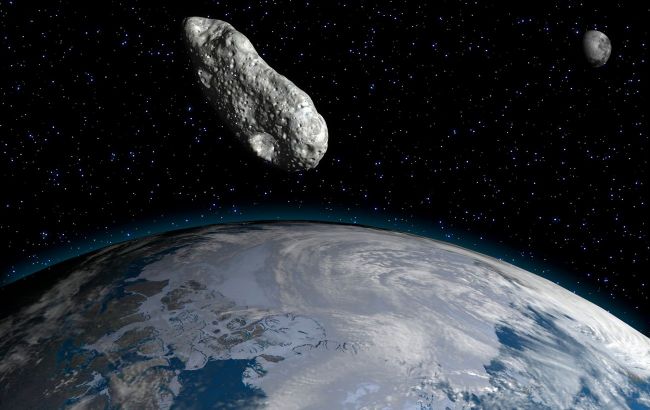'Planet killer' asteroid approaching Earth: Possible threat
 A giant asteroid, called a 'planet killer', is heading toward Earth (Getty Images)
A giant asteroid, called a 'planet killer', is heading toward Earth (Getty Images)
An asteroid that scientists call a 'planet killer' is approaching Earth. It will fly by our planet as close as possible, only 17 times the distance of the Moon from the Earth.
RBC-Ukraine reveals what is known about this asteroid and whether it poses a threat to humans regarding LiveScience.
The giant asteroid 2011 UL21, which is the size of a mountain, is due to fly past our planet on June 27. This is the largest asteroid to come this close to Earth in the last 25 years. It will pass at a distance of about 4 million kilometers at a speed of 93,000 kilometers per hour.
Scientists label this asteroid as potentially dangerous given its proximity to Earth. And fans can even watch its flight.
Space body 2011 UL21 orbits the Sun once every three years, which is 1.3 times the average distance between the Earth and the Sun.
This asteroid is believed to be about 2 and about 4 kilometers wide, making it larger than about 99% of near-Earth asteroids. Scientists suggest that it is about 5 times the size of the asteroid that wiped out the dinosaurs.
Although it has a potentially hazardous status, scientists suggest that asteroids of this size can cause damage to the Earth on a continent-wide scale. This will lead to a huge amount of dust rising into the atmosphere, and the result will be serious changes in the Earth's atmosphere.
According to the modeling conducted by NASA's Jet Propulsion Laboratory, this asteroid will be the largest to approach the Earth in the last 110 years. It will be visible in the northern hemisphere between June 28 and 29.
"Although the space rock poses no threat to Earth — either now or in the future — it is interesting because it's probably one of the 10 biggest asteroids to pass within 4.7 million miles (7.5 million km) of our planet since 1900," says astrophysicist Gianluca Masi.
Earlier, we wrote that NASA issued an important warning because the Black Sea had changed color dramatically.

